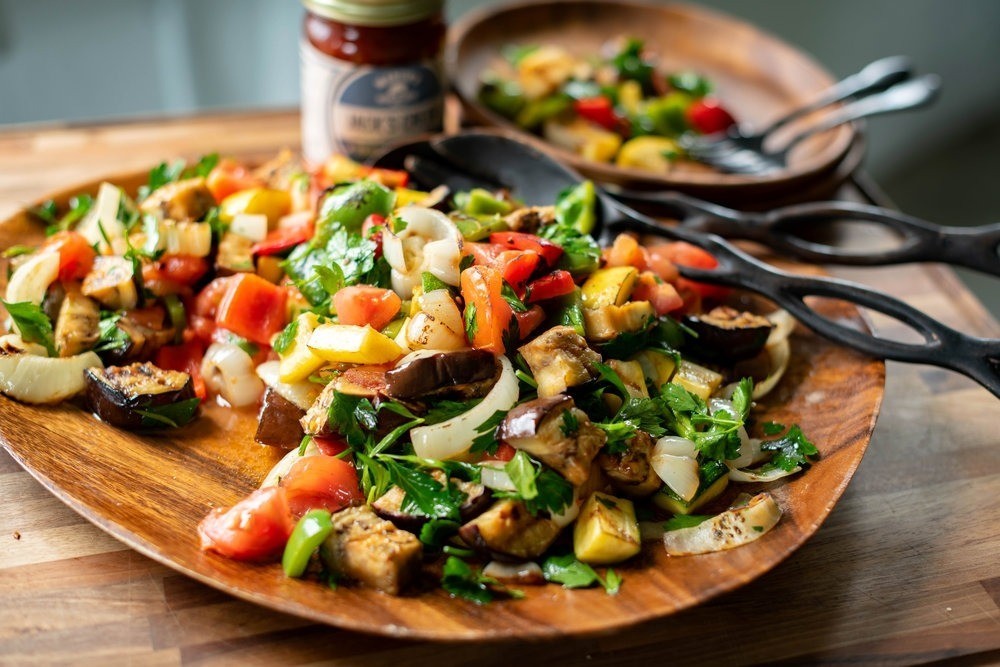When I told a musician friend I was going to Nashville he laughed and said “I hope you like bar-bee-cue.”
I do like barbecue – a lot – but there’s been a revolution taking place in restaurant kitchens across the American south and the word is that Nashville’s dining scene is jumping. These days Music City has much more to offer than ribs and brisket.
Downtown Nashville’s architecture is a mix of old and new, with heritage buildings and high-rises rubbing shoulders beneath a skyline dominated by construction cranes. The economy is booming and Nashville is currently outpacing development in all other Tennessee cities, and many others across the USA. New residents are flooding in and the culinary scene is exploding. More than a hundred new restaurants opened in 2018 alone. And perhaps more significant than the increase in restaurant numbers is the growing diversity of the dining scene.

Sean Brock is a name you will hear not only in Nashville (where his former restaurant Husk set the gold standard for farm-to-fork dining) but throughout the South, from chefs who have been inspired by his reimagining of traditional foods. Southerners are pretty traditional when it comes to dinner. Fried chicken, meat and two sides, biscuits and gravy, sweet tea, and (yes) barbecue, are the foods that speak of home and family. Rather than turn his back on these culinary roots, Brock and the chefs who follow his credo have chosen to celebrate them.

Nashville is one boisterous, neon-vibrant town but its pulsing core is surrounded by green hills and quiet rural communities. Most native Nashvillians are only one or two generations away from life on a farm where food was homegrown and locally sourced, and intimately tied to the Tennessee land and seasons. The arts of pickling, bottling, preserving and generally making do with what’s at hand have not been forgotten. Chefs like the Beard-awarded Brock (“the most conspicuously gifted American chef of his generation” according to Time Magazine), and those who have taken up his championship of regional cooking, are bringing a modern culinary sensibility to Southern foodways that have sustained generations.
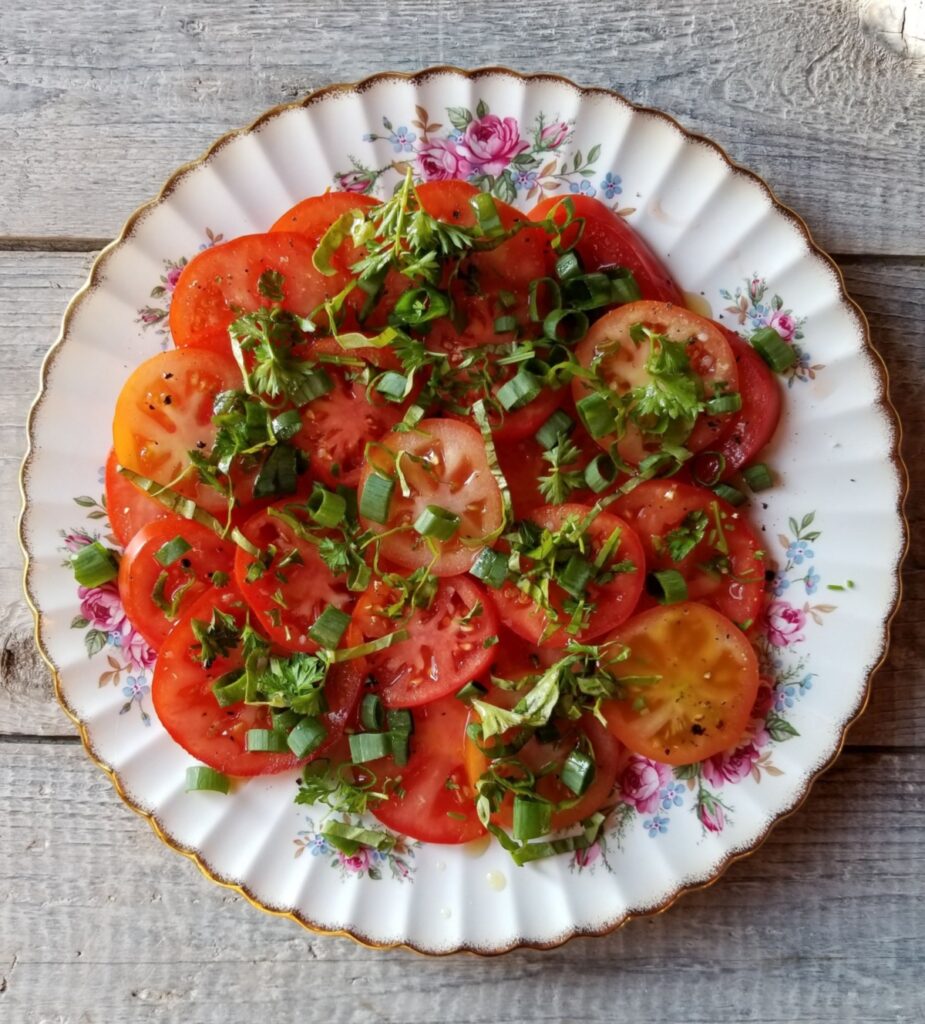
Brock describes his culinary vision as “the repatriation of the southern pantry.” In restaurants all across Nashville, this revolution is unfolding. At Mason’s, an upscale cocktail lounge decorated with the eponymous canning jars, the menu boasts “tried and true Southern provisions.” But someone has been tampering with tradition. Nashville Hot Chicken (the city’s signature dish) comes tucked into a steamed Chinese bun, with a sprightly garnish of fresh chile. Locally farmed rib eye of beef is served raw, with a herb salad, in miniature tacos. Smoked bacon, still redolent of forest and ember, fills little tarts topped with wisps of endive. Familiar foods, approached with fresh imagination.

At The Farm House, chef Trey Cioccia demonstrates that when it comes to fresh seasonal ingredients, less is often more. North Carolina trout is sweet and buttery, its pearlescent skin deliciously crisped. On the side, a simple salad of shaved vegetables (squash, radish, carrot) with peppery sprigs of watercress balanced by a gentle vinaigrette; and a platter of crispy pig ears. On my companions’ plates, a pork chop cooked sous vide rests on a bed of pecan-studded dirty rice; fat scallops seared in butter and thyme come with a side of gouda-enriched grits. All superb. Cioccia’s cooking, and the restaurant’s rustic décor (barn doors, rough-hewn timbers and salvaged farmhouse antiques) channel the spirit of his grandfather’s 100-acre farm. And in honouring that tradition, Farm House closes its doors every Sunday, so that staff can sit down to dinner with their families.
Next, a burger slam dunk. And not in a restaurant but a brewery. Tennessee Brew Works offers high quality, locally inspired craft beers — on tap, and in dishes that make up a short but creative menu of bar food. The Five Beer Burger — bun, patty, pickles, ketchup and the Southern condiment known as Comeback Sauce are each made with a different house brew – is brilliant. And the place is pretty cool too, with vintage music posters on exposed brick walls and a stage where local musicians perform. According to founder and owner Christian Spears, ten years ago there was only one craft brewery in Tennessee, now it’s the fastest growing industry in the state. And says Spears, good beer deserves good food.
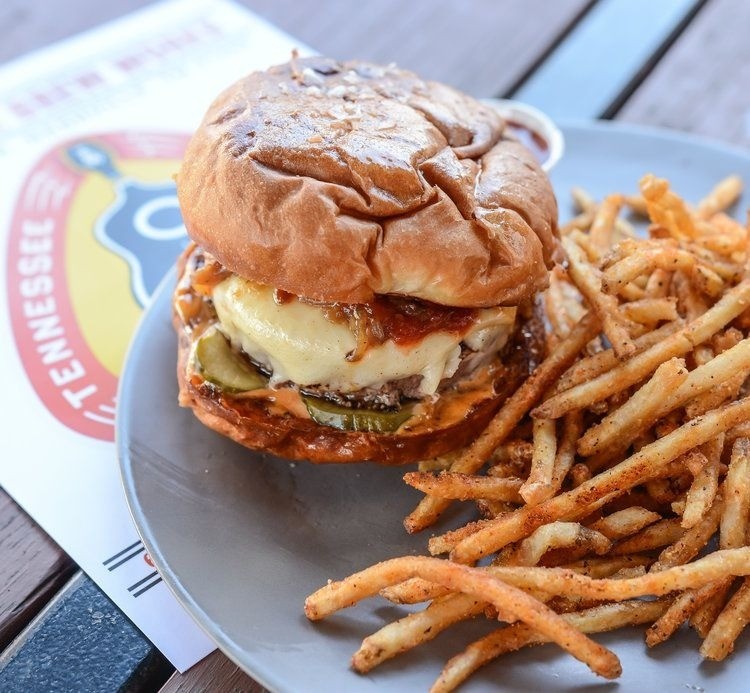
I find more good food at Josephine, a casual yet sophisticated establishment that is buzzing with activity on a weekday evening in Nashville’s 12 South district. The décor is sleek and eclectic, with black and white tile floor, a large central bar and long dining tables made from refinished bowling alley lanes. The style of cooking, described by chef Andy Little as “modern American,” is a glorious celebration of tastes and textures.
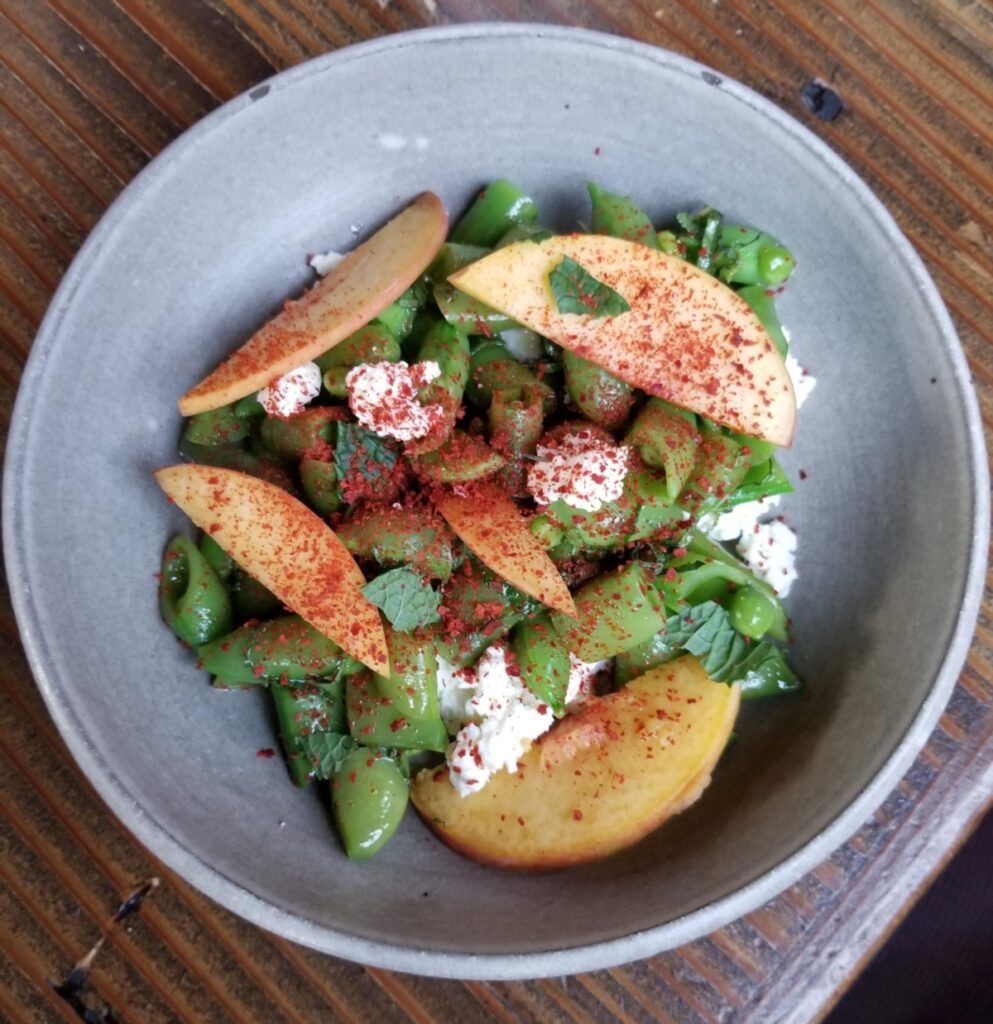
A tangle of braised beef tongue with caramelized onions and horseradish, rich and unctuous, is balanced with a salad of sugar snap peas, peaches, ricotta and mint. A summery dish of cucumber, sweet onion, yuzu and garden herbs is as pretty as a picture, and light on the palate. A fat pork chop gets a sorghum vinegar glaze and a topknot of charred slaw. On the side, Bibb lettuce with thinly sliced radishes, bacon, country bread croutons and a buttermilk ranch dressing. Everything is local, fresh, and executed with finely honed technique. It’s the kind of cooking you’d expect to find in a fine-dining place downtown, but in Nashville, exciting eateries are popping up all over.
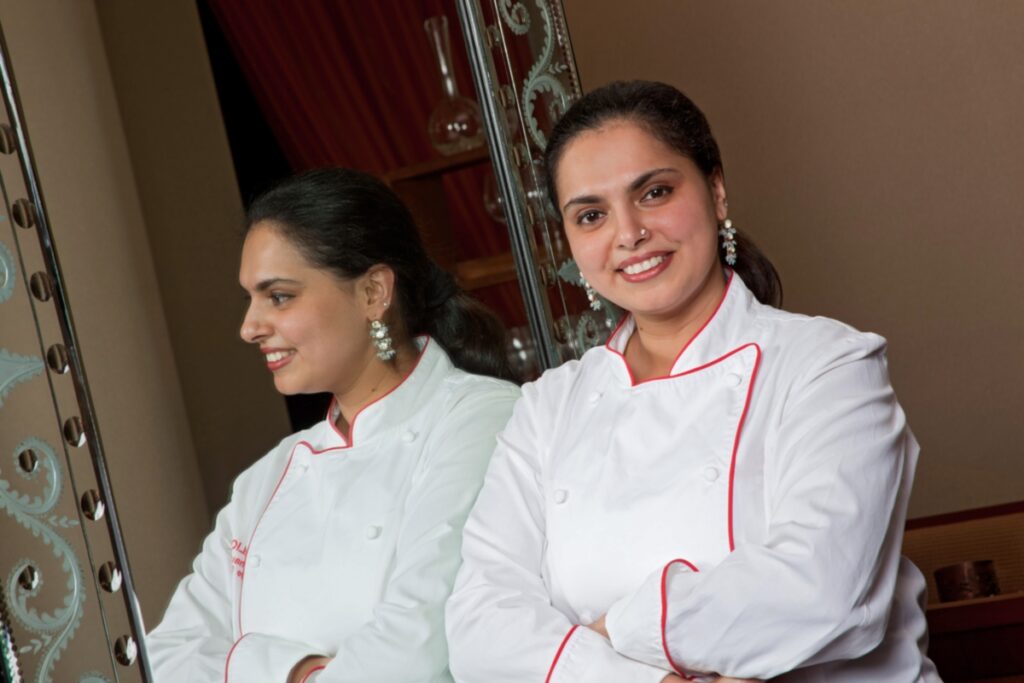
Not long ago, the Music City dining scene experienced a shakeup with the arrival of Maneet Chauhan, a Food Network celebrity of Punjabi-American descent, with an effervescent personality and energy to spare. After relocating to Nashville from New York, Chauhan opened four restaurants in as many years. Chauhan Ale & Masala House and Chaatable serve Indian cuisine; Tànsŭo upscale Chinese; and Mockingbird is an American diner concept, with a menu that is all over the map, from France to Korea and back. In a town with conservative eating habits, Chauhan threw open the doors to global influences, emboldening local chefs to take more risks, and diners to be more adventurous. Combined with a new respect for local ingredients, this willingness to take familiar foods in different directions is at the core of contemporary restaurant cooking in Nashville. I wasn’t surprised to learn that eight Nashvillean chefs and restaurateurs are among the James Beard Award semifinalists announced for 2020.
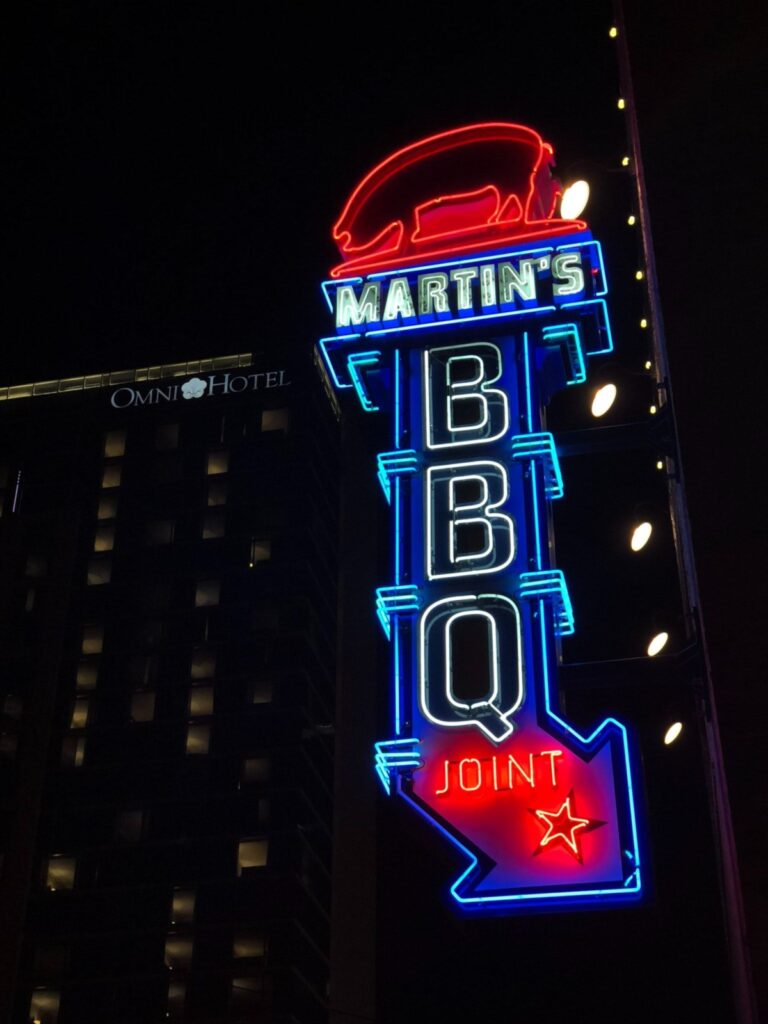
And finally, there was barbecue. Very good barbecue. If you time it right, at Martin’s BBQ Joint you will see a whole hog, burnished to glossy, crisp perfection, hauled out of a glowing pit and chopped up with a couple of flying hatchets by a guy in rubber boots. Then you’ll tuck into the best pig feast you ever had. And no, Martin’s isn’t a third-generation operation. It’s a start up by a Texas-born Wall Street refugee who moved to Nashville in 2006 and opened what Bon Appetit magazine named the best new barbecue spot in America. Touché y’all!
